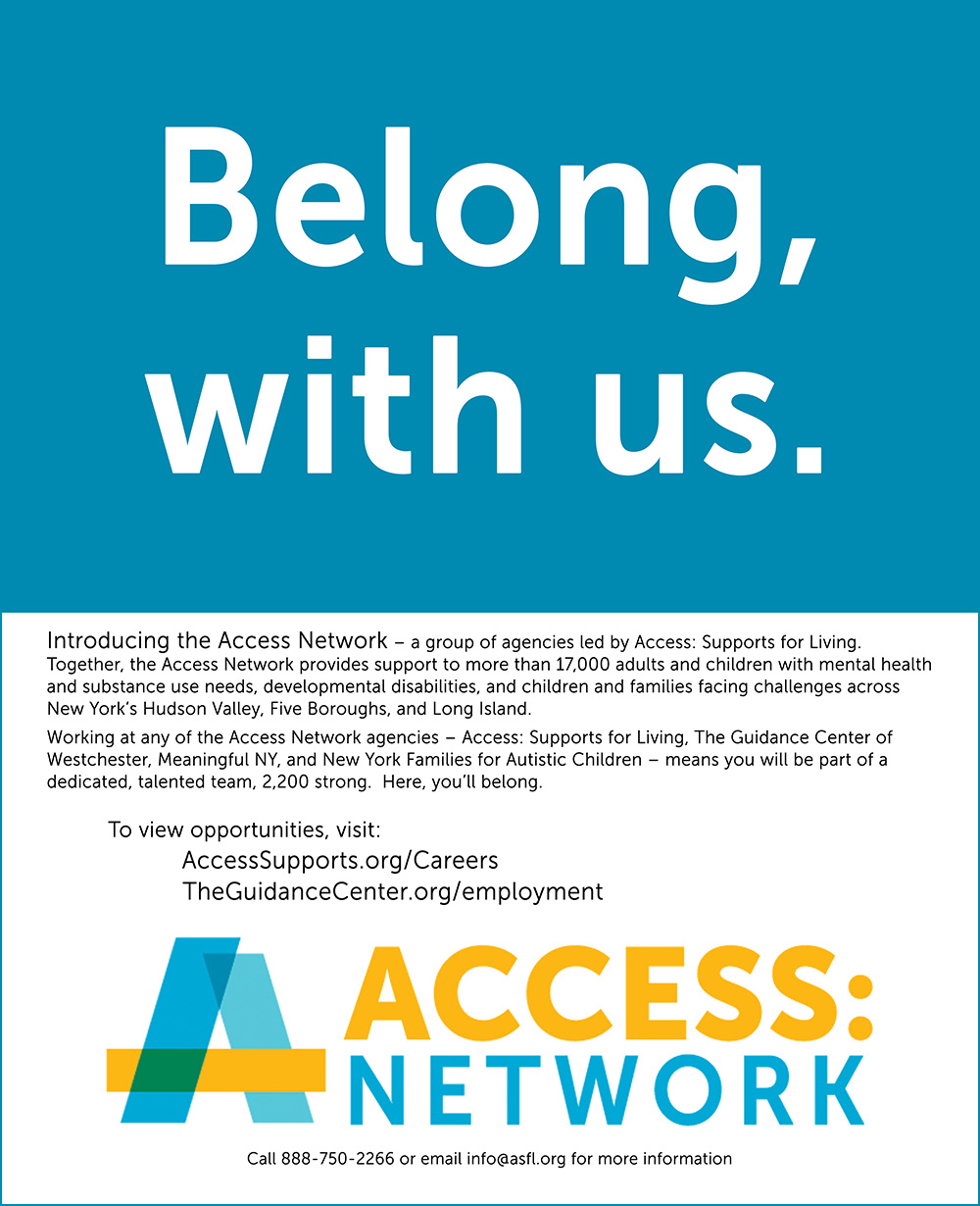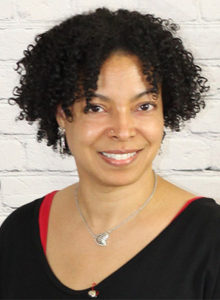As a newly licensed master social worker, I began my career in a health center of a major New York City hospital system in 2007. Addiction and substance use, mental health, and comprehensive medical care were all provided within the center. Joining The Guidance Center of Westchester (TGCW) 12 years ago, I learned first-hand the challenges nonprofit community-based organizations face when attempting to address the complex co-occurring needs of individuals and families.

When I initially joined TGCW, I provided comprehensive assessments as well as individual, family, and group psychotherapy as part of a multidisciplinary team in our New Rochelle children and families clinic. The team included clinicians from a variety of disciplines: social work, psychiatry, psychology, marriage and family therapy, mental health counseling, and creative art therapy. I worked with children as young as four years of age and adults well into their 80s. I loved the opportunity of engaging a diverse group of individuals who each had unique presentations, needs, and challenges.
Very different from a program within a hospital system in New York City, the ability to integrate medical care was much more complicated in a smaller nonprofit social services organization. Negotiating medical care meant developing relationships with numerous medical providers or falling short in being able to effectively engage program participants in their medical care. For those with challenges related to alcohol and substance use, other clinicians and I were making linkages to substance use treatment and recovery programs. However, in some cases that meant a person would have their mental health needs served in one program or agency, addiction needs served in another program or agency, and medical needs also served elsewhere – an ongoing challenge for service providers who specialize in either mental health or addiction.
Fortunately, TGCW operates substance use treatment programs including medication assisted treatment, as well as supported housing programs for individuals struggling with mental health conditions and/or addiction. Each of the substance use programs has medical staff and services which enable primary care services to be provided as part of their treatment. TGCW also established two evidence-based integrated treatment and recovery-oriented services programs: Personalized Recovery Oriented Services (PROS) in 2011 and Assertive Community Treatment (ACT) in 2018. Both programs integrate medical, mental health, and addiction care in addition to providing family, vocational, and housing supports. Health Home Care Management services, established in 2016, is yet another resource TGCW provides to support integrated medical and behavioral health care.
There is a saying around our offices, “If there’s a need, we have a program for that!” From co-locating mental health and addiction programs to integrating mental health, addiction, medical care, and additional supports, TGCW has evolved to support the full range of complex co-occurring needs of those who seek our services.
The culmination of the agency’s evolution to become a Certified Community Behavioral Health Clinic (CCBHC) organization in 2020 reflects the “no wrong door” of comprehensive care that is truly needed to provide whole person care and supports. Today as a SAMHSA CCBHC expansion grantee organization, TGCW provides 24/7 access to services via a toll-free hotline 1.888.TGCW.CAN (888-842-9226) as well as walk-in hours at locations in Mount Vernon and New Rochelle. This centralized engagement and access to services is one small step to innovate behavioral health treatment and recovery. Throughout the organization we have trained more than 30 team members to become Certified Alcohol and Substance Abuse Counselors (CASACs), ensuring comfort and skill among our already multidisciplinary team of clinicians to address co-occurring mental health and addiction needs of our program participants. TGCW also obtained integrated licenses from the Office of Mental Health (OMH) and the Office of Addiction Supports and Services (OASAS) in two of our clinic programs and have collocated OMH and OASAS clinics in our headquarters.
The process of becoming a CCBHC has also enabled TGCW to provide mobile crisis response and engage in innovative initiatives. In New Rochelle, TGCW is the behavioral health provider for a newly established Opportunity Youth court. In Mount Vernon, TGCW collaborates with the Mount Vernon Police Department for co-response, homeless outreach, and linkages to behavioral health supports. As we continue to expand our wrap around services, I am comforted in knowing that TGCW can and does support the full age range and complex co-occurring needs of individuals and families, including education, career/vocational needs, housing, in addition to treatment and recovery, as well as access to medical care.
The Guidance Center of Westchester is part of the Access Network – a group of agencies led by Access: Supports for Living. Together, the nearly 2,200 staff of the Access Network provide support to more than 17,000 adults and children with mental health and substance use needs, developmental disabilities, children and families facing challenges, and those who need support with housing and employment across New York’s Hudson Valley, the five boroughs of New York City, and Long Island.
Shawna Marie Aarons-Cooke, LCSW-R, CASAC2, is Senior Vice President of Programs at The Guidance Center of Westchester, an affiliate of Access: Supports for Living. Please visit our early childhood website: www.TheGuidanceCenter.org/earlychildhood.





